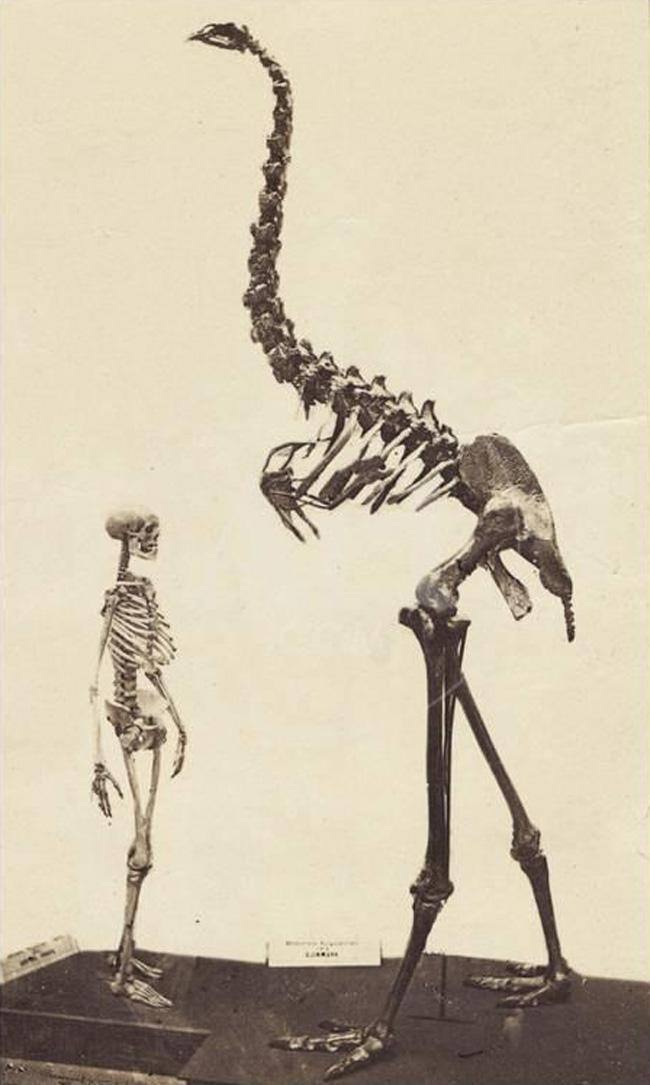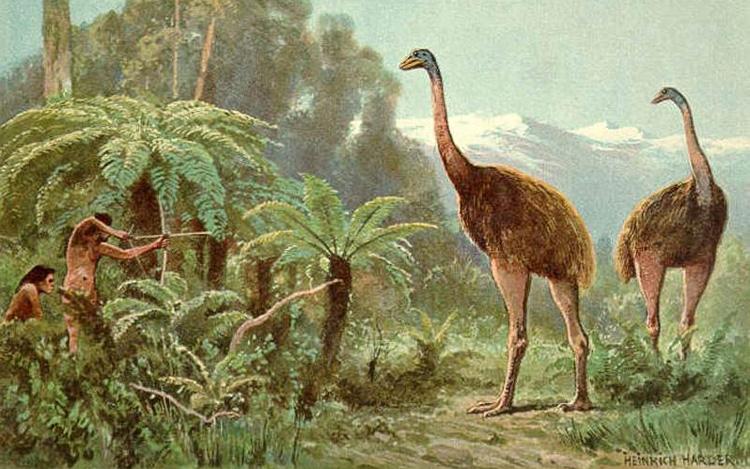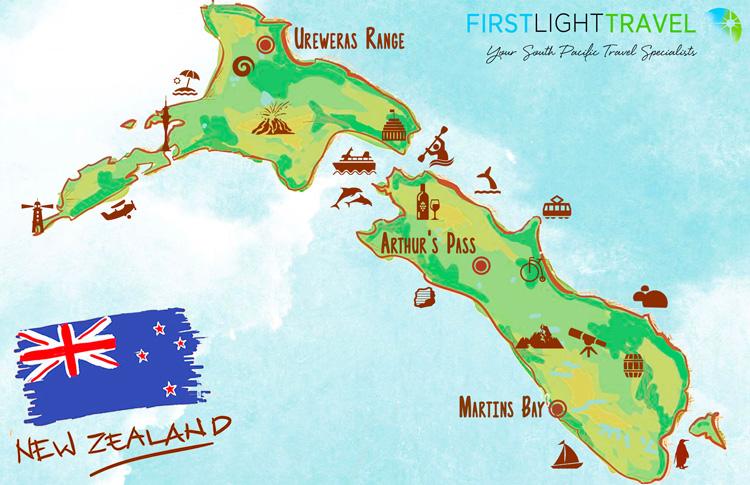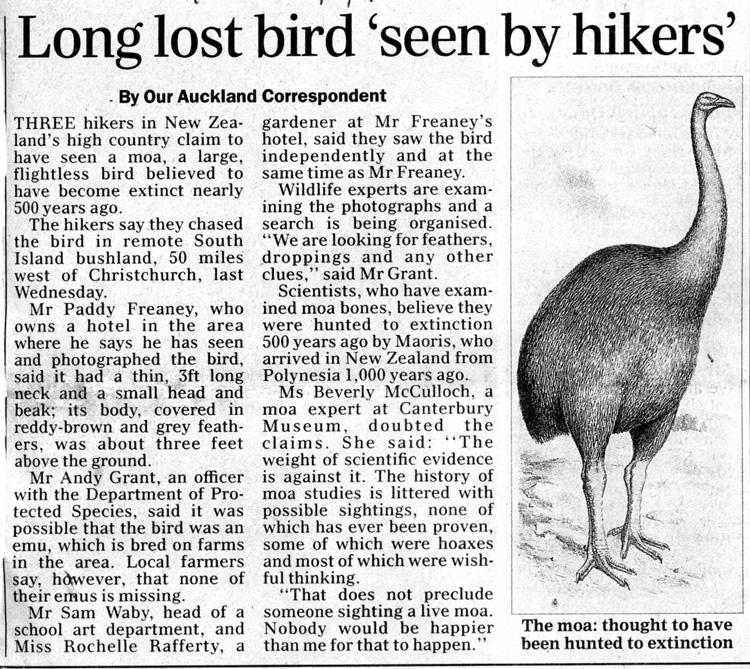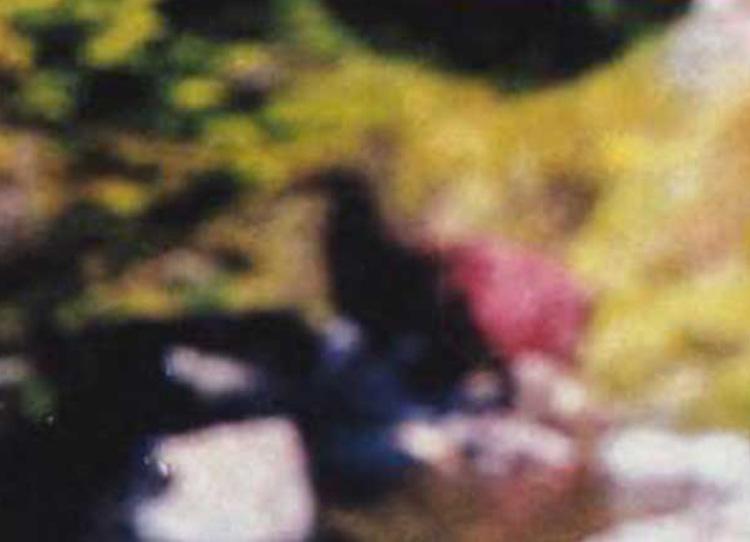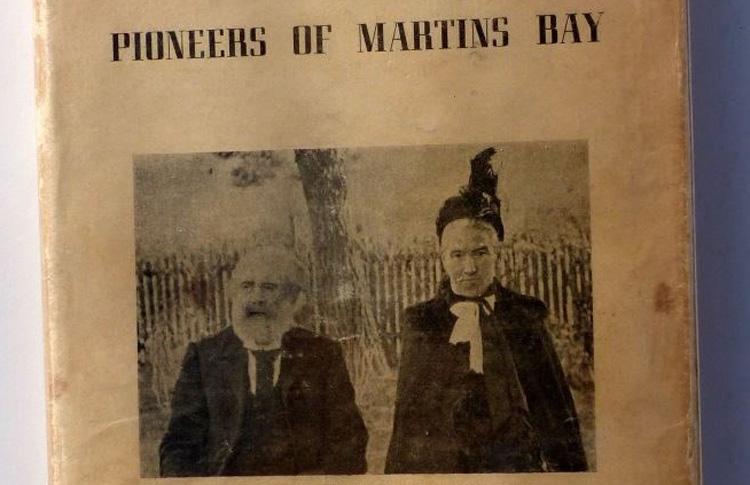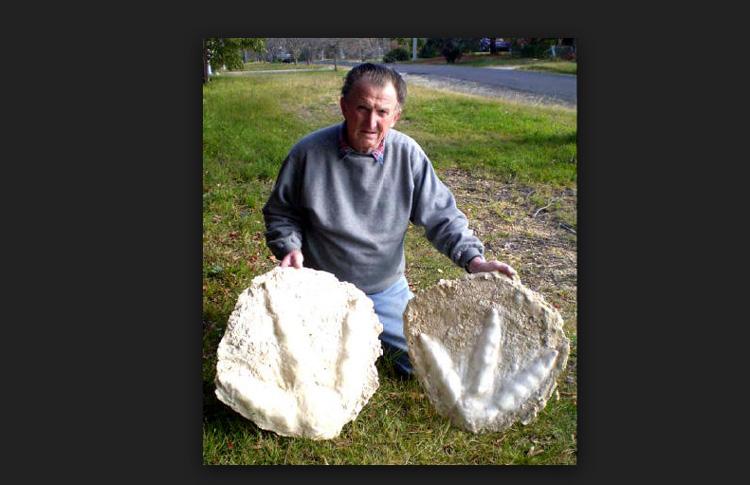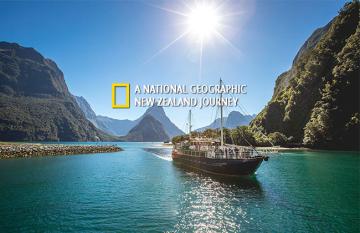
Scotland has Nessie, America - Sasquatch and the British have their Big Cats. Not to be outdone, little old New Zealand has a Bigfoot too … But this one is a lot taller and has feathers not hair – and we have a full skeleton!
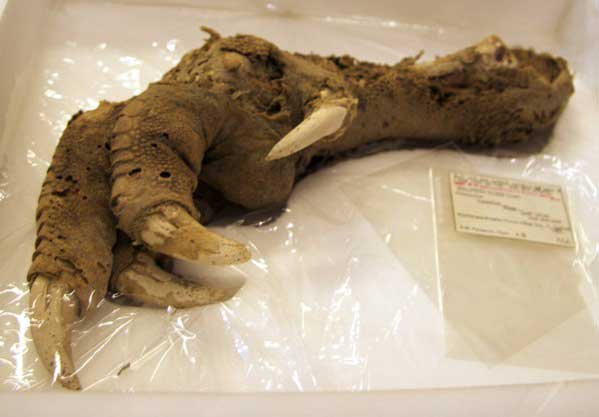
Contents
Photo: The preserved foot of a Moa (Megalapteryx didinus) found near Queenstown in 1878 - The foot is currently held by the Natural History Museum, London.
A New Zealand Monster!
Scotland has Nessie, America - Sasquatch and the British have their Big Cats. Not to be outdone, little old New Zealand has a Bigfoot too … But this one is a lot taller and has feathers not hair – and we have a full skeleton!
The tallest and heaviest bird that ever lived was the Emu-like Moa of New Zealand, which grew to a dizzying height of 12-14 ft and weighed in at 600 pounds. It was thought to have been hunted to extinction by 1400 AD.
But some recent evidence suggests otherwise....
The Giant Moa
11 species of these flightless birds endemic to New Zealand, ranging from 40 to 600 pounds. Early Maori settlement sites are littered with moa bones suggesting they were an important food of the first peoples.
These birds were the dominant herbivores in New Zealand's shrub-lands, forests and subalpine ecosystems for thousands of years. Up until the arrival of the Māori their only predator was the Giant Haast's Eagle. The first human's settlers are believed to have arrived from Polynesia around 1280 AD - no Moa bones are found in caves that were occupied after 1400 AD.
When Moa bones were first discovered by Europeans in the 1830s, the birds were instantly declared a scientific marvel. Once the largest bird to have existed, Moa briefly became a New Zealand's national symbol - and New Zealand was called ‘the Land of the Moa’.
The two largest species: Dinornis robustus and Dinornis novaezelandiae, reached about 3.6 m (12 ft) in height with neck outstretched, and weighed about 230 kg (510 lb). It is estimated that, when Polynesians settled New Zealand circa 1280, the moa population was about 58,000.
1) Paddy Freaney - January 1993, Arthurs Pass
Hotel owner and well-known mountaineer Paddy Freaney claimed to have seen a Moa in the Craigieburn Range in Arthurs Pass Canterbury. Freaney’s claim was that he and two hikers spotted a 6-foot Moa – evidence he tried to support with this somewhat blurry photograph (Below) Paddy was a former member of the British elite SAS squad and an avid mountaineer and was not thought of by his peers as a publicity seeker.
His Story: "The three claim the creature stood three feet off the ground, had a thin long neck, roughly three feet long, ending in a small head and beak. The bird had reddish brown and grey feathers that covered the entire body with the exception of its legs from below the knees. Seeing the men the Moa fled across the river, Freaney gave chase and was able to take a photograph of the Moa at a distance of nearly 115 feet”.
The claim, because of who he was and because of the photo, meant the event was taken seriously at the highest levels of government. Many debunkers appeared and claimed Paddy's sighting was nonsense and that the photograph was everything from a fake to a small red deer. Paddy was upset and outraged and spent many years trying to regain his good name by launching expeditions to find proof that the Moa was out there unfortunately to no avail.
Paddy's Photograph
2) Alice McKenzie 1880, Martins Bay
In 1876, at Martins Bay, 30km north of Milford Sound, in Fiordland Alice McKenzie (Age 7) describes in her meticulous diary jottings of everyday life how she saw a large blue bird under flax where the bush line met the beach. Alice describes touching the bird’s curved rump feathers and stretching out one of its dark-green, scaly legs. It was only when Alice tried to tether the bird with flax that it let out a “harsh, grunting cry” and chased her for a short distance. McKenzie described the bird as being pukeko blue, with legs as thick as her wrist and no noticeable tail. When it stood up, it seemed as tall as she was.
The encounter with a large bird she believed for many years must have been a takahe. But when that bird was dramatically rediscovered in the 1940s, and Alice saw what it looked like, she realised she'd seen something else.
In 1959, she was interviewed by the New Zealand Broadcasting Service:
"It was lying on the sand, sunning itself.
"I got nearer and nearer until I sat down on the sand behind it. I remember stroking its back. It had no tail.
"It just lay there, it was quite quiet. So I put my hand underneath it and drew out one of its legs. It took no notice of me. I started to tie the flax around it, I thought I'd tie it up.
"Then it got up and made a harsh, grunting cry and bit at me. And I ran as hard as I could over the sandhills towards the sea. I thought if I went down to the sea it mightn't follow me into the water. I never looked behind, it never came very far with me.
"When I got home and told my father he came to have a look. But the bird was gone when he came. He saw its tracks where it had followed me from the top of the sandhills but it didn't go over them.
"He had a foot-rule in his pocket and he measured [the tracks]. From the heel to the middle toe was 11 inches."
3) Rex & Heather Gilroy Urewera Ranges 2008
In 2008, Rex & Heather Gilroy, Cryptozoologists have claimed to have taken casts of Moa footprints from the Ureweras range (Remote North Island) and made other claims about their current-day existence. Gilroy claimed these proved the later-day presence of the smaller scrub Moa's, measuring between 90 centimetres and about 1.5 meters.
For Further Reading & Information
Other articles that may be of interest.
Meet the Smartest Parrot on the Planet
Go Moa Hunting
Some guided hikes into where the Giant Moa may still roam.
1) Three Day Hike into the Remote Hollyford Valley
2) A Day Hike into the Wild Arthur's Pass National Park
3) Three Day Lake Waikaremoana Walk in Te Urewera National Park
Last updated on the 10th of January 2019 by Brent
Recent Posts
Blog Categories
Blog archives
- February 2025 (3)
- January 2025 (6)
- December 2024 (12)
- November 2024 (3)
- October 2024 (2)
- July 2024 (2)
- May 2024 (12)
- April 2024 (2)
- March 2024 (2)
- January 2024 (2)
- November 2023 (10)
- October 2023 (4)
- August 2023 (1)
- May 2023 (2)
- April 2023 (2)
- March 2023 (17)
- February 2023 (4)
- January 2023 (4)
- December 2022 (11)
- November 2022 (7)
- October 2022 (1)
- May 2022 (1)
- March 2022 (3)
- February 2022 (3)
- January 2022 (1)
- December 2021 (1)
- August 2021 (1)
- June 2021 (1)
- May 2021 (2)
- February 2021 (1)
- August 2020 (1)
- July 2020 (1)
- May 2020 (1)
- April 2020 (1)
- March 2020 (1)
- January 2020 (1)
- December 2019 (1)
- November 2019 (1)
- October 2019 (1)
- September 2019 (1)
- August 2019 (5)
- July 2019 (2)
- June 2019 (1)
- May 2019 (3)
- April 2019 (1)
- March 2019 (1)
- February 2019 (1)
- January 2019 (1)
- December 2018 (1)
- November 2018 (1)
- September 2018 (1)
- August 2018 (1)
- July 2018 (1)
- June 2018 (1)
- May 2018 (1)
- April 2018 (1)
- March 2018 (1)
- February 2018 (1)
- January 2018 (1)
- December 2017 (1)
- October 2017 (1)
- September 2017 (1)
- August 2017 (1)
- July 2017 (1)
- June 2017 (1)
- May 2017 (1)
- April 2017 (1)
- March 2017 (1)
- February 2017 (1)
- January 2017 (1)
- December 2016 (1)
- November 2016 (1)
- October 2016 (1)
- September 2016 (1)
- August 2016 (1)
- July 2016 (1)
- June 2016 (1)
- May 2016 (1)
- April 2016 (1)
- March 2016 (1)
- February 2016 (1)
- January 2016 (1)
- December 2015 (1)
- November 2015 (1)
- October 2015 (1)
- September 2015 (1)
- August 2015 (1)
- July 2015 (1)
- June 2015 (1)
- May 2015 (1)
- April 2015 (1)
- March 2015 (1)
- February 2015 (1)
- January 2015 (1)
- December 2014 (1)
- November 2014 (1)
- October 2014 (1)
- September 2014 (1)
- July 2014 (1)
- June 2014 (3)
- May 2014 (1)
- April 2014 (1)
- March 2014 (1)
- February 2014 (1)
- January 2014 (1)
- November 2013 (15)
- October 2013 (1)
- September 2013 (1)
- August 2013 (1)
- July 2013 (1)
- May 2013 (1)
- April 2013 (1)
- March 2013 (1)
- February 2013 (1)
- January 2013 (1)
- December 2012 (1)
- November 2012 (2)
- October 2012 (2)
- September 2012 (2)
- August 2012 (2)
- July 2012 (2)
- June 2012 (2)
- May 2012 (2)
- April 2012 (3)
- March 2012 (2)
- February 2012 (2)
- January 2012 (2)
- December 2011 (2)
- November 2011 (1)
- October 2011 (2)
- September 2011 (1)
- August 2011 (1)
- July 2011 (1)
- June 2011 (1)
- May 2011 (1)
- April 2011 (1)
- March 2011 (1)
- February 2011 (1)
- January 2011 (1)
- December 2010 (1)
- November 2010 (1)
- October 2010 (1)
- September 2010 (1)
- August 2010 (1)
- July 2010 (1)
- June 2010 (1)
- May 2010 (1)
- March 2010 (1)
- February 2010 (1)
- January 2010 (1)
- December 2009 (1)
- November 2009 (1)
- October 2009 (1)
- September 2009 (1)
- August 2009 (1)
- July 2009 (1)
- June 2009 (1)
- May 2009 (1)
- April 2009 (1)
- March 2009 (1)
- February 2009 (1)
- January 2009 (1)
- December 2008 (1)
- May 2005 (1)


